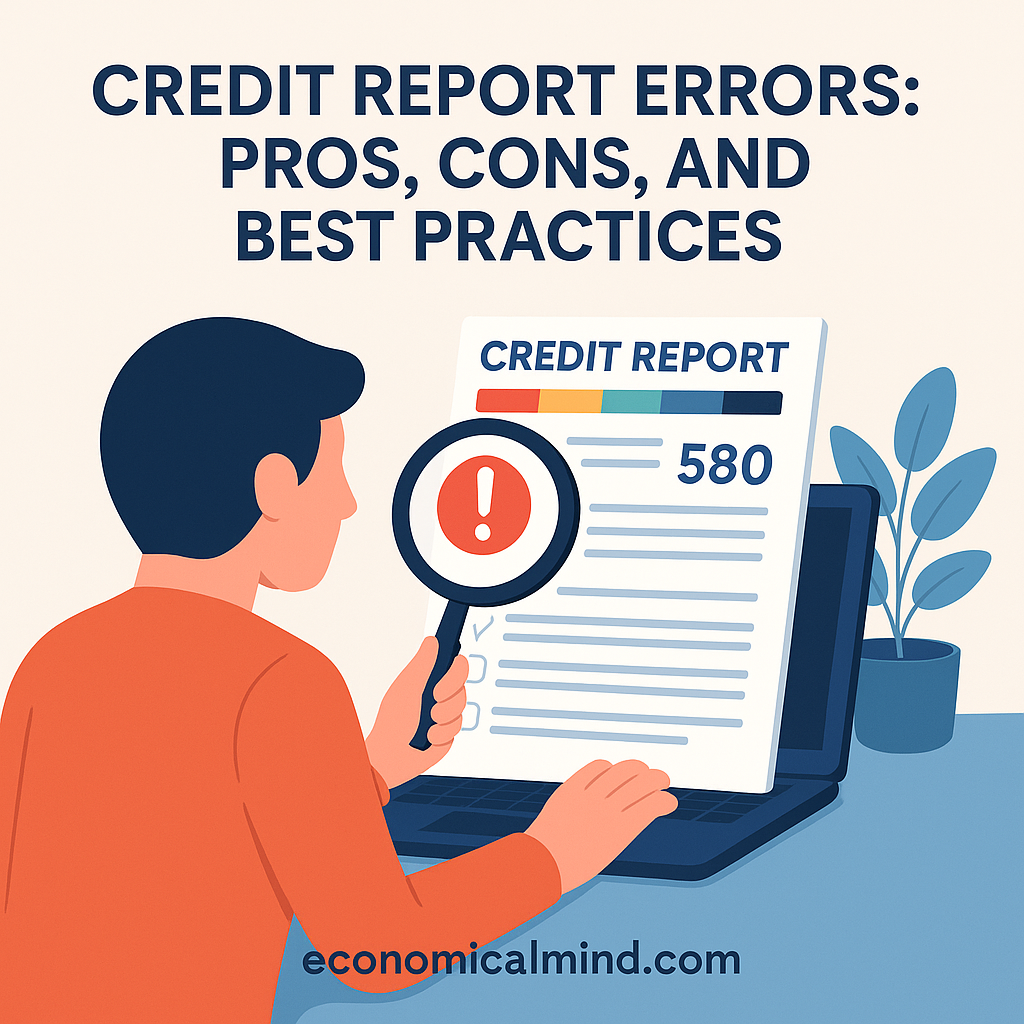
Your credit report is like your financial report card—it affects your ability to borrow money, rent an apartment, or even get certain jobs. But millions of Americans find errors on their reports each year. These mistakes can unfairly hurt your credit score, raise your interest rates, and even lead to loan denials. The good news? Fixing them can significantly improve your financial standing.
Let’s look at the upsides, downsides, and best practices for handling credit report errors.
The Pros of Catching and Fixing Credit Report Errors
While errors are frustrating, finding them early can actually benefit you in the long run.
- Improved credit score: Correcting false negatives (like missed payments or collections) can raise your score quickly.
- Lower borrowing costs: A better credit score helps you qualify for lower interest rates and better loan terms.
- Fraud protection: Spotting incorrect accounts or addresses early can reveal identity theft before it spreads.
- Better financial awareness: Reviewing your report regularly builds credit literacy and money awareness.
- Increased confidence: Knowing your report is accurate gives you peace of mind when applying for credit.
The Cons (and Challenges) of Disputing Errors
Disputing errors isn’t always simple—it can take time, patience, and documentation.
- Lengthy process: Credit bureaus have up to 30 days to investigate disputes, and sometimes longer.
- Inconsistent results: Some disputes get denied even with proof, requiring multiple follow-ups.
- Emotional frustration: Dealing with bureaucracy or unresponsive lenders can be discouraging.
- Potential temporary dips: If disputes lead to account re-verifications, your score may fluctuate briefly.
- Limited control: You can fix mistakes, but not always prevent them—especially after data breaches or identity theft.
Despite the drawbacks, addressing errors is almost always worth the effort—your credit score influences nearly every aspect of your financial life.
Best Practices for Handling Credit Report Errors
A proactive, organized approach makes resolving credit report issues far smoother.
1. Check All Three Credit Reports
Get free annual copies from Equifax, Experian, and TransUnion at AnnualCreditReport.com. Review all three—errors can appear on one but not the others.
2. Look for Common Mistakes
Check for wrong names, outdated addresses, duplicate accounts, incorrect payment history, or debts you don’t recognize.
3. Gather Documentation
Keep statements, payment confirmations, and correspondence with lenders. You’ll need this when filing disputes.
4. File a Formal Dispute
You can dispute errors online, by mail, or by phone with each bureau. Be specific, include copies of evidence, and keep records of every submission.
5. Follow Up Consistently
Set reminders to check back within 30 days. If the bureau doesn’t respond, you can escalate through the Consumer Financial Protection Bureau (CFPB).
6. Monitor Your Credit Regularly
Use a trusted monitoring service or free credit apps to stay alert for future errors or signs of fraud.
The Bottom Line
Credit report errors can feel like a setback, but catching them early is actually a financial advantage. Each correction you make strengthens your credit history and gives lenders a more accurate picture of your reliability. With persistence, organization, and regular reviews, you can protect your credit score—and your financial future.
